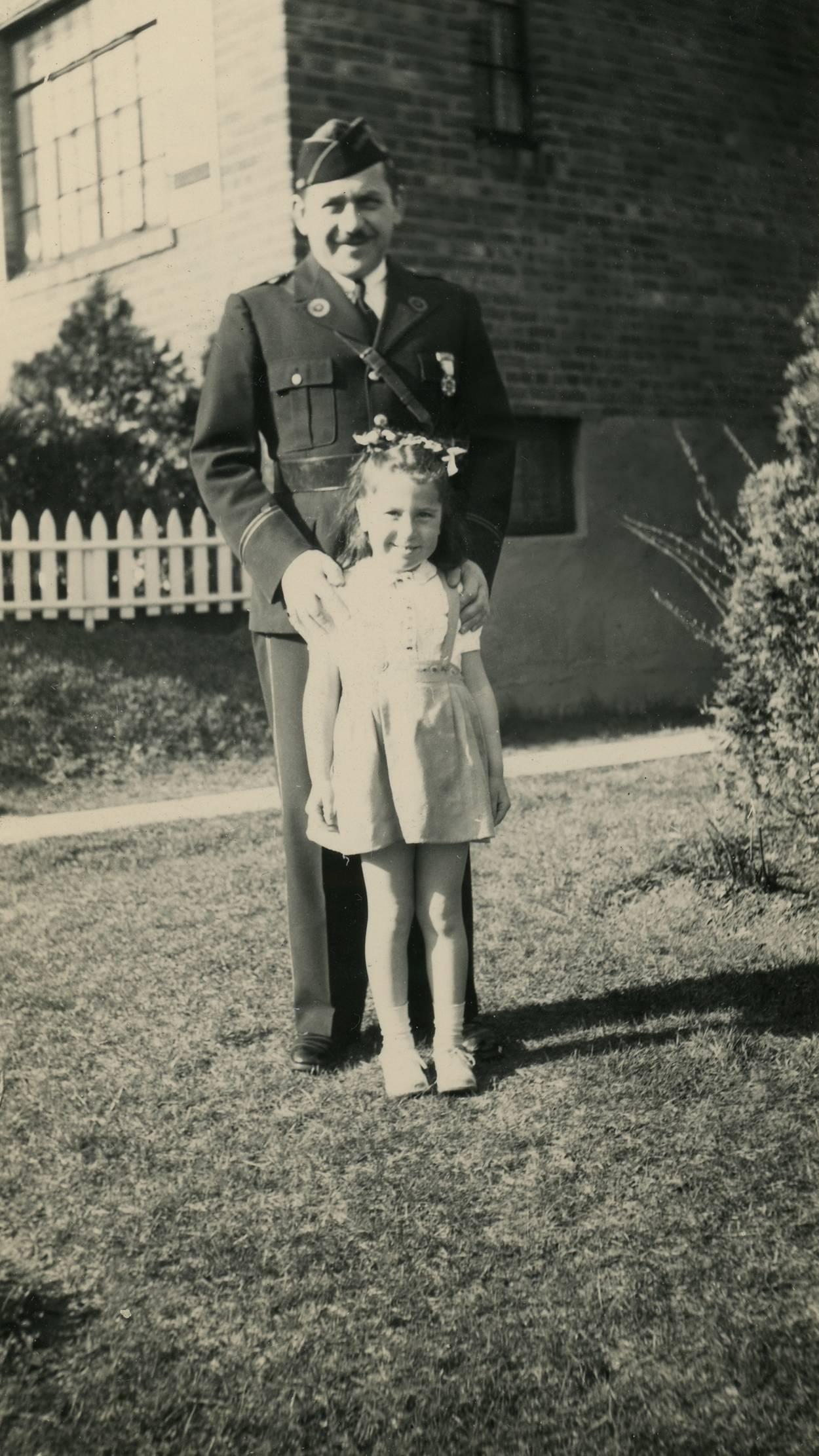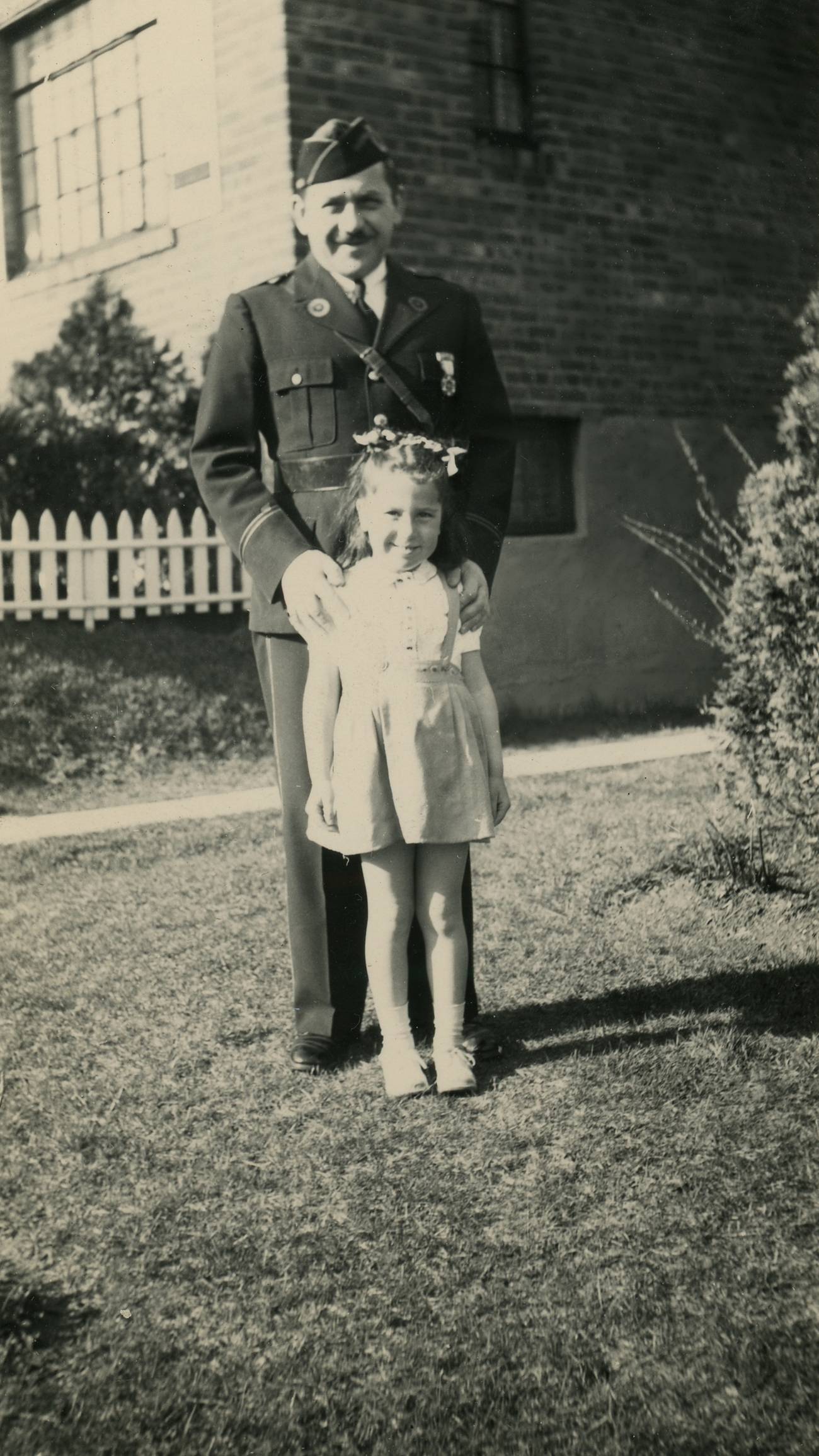The Arbiter of Jewish Law
My father bent the rules when it came to driving on Shabbat or eating Chinese food. But when I asked him to bend a rule for me, he wouldn’t budge.




I’d be hard-pressed to define “the Jews.” Are we a religion, ethnic group, nation, people, or all the above? In 2013, the Pew Survey of American Jews asked a couple of thousand members of our tribe what they consider “essential to being Jewish.” Because respondents had the option to check multiple boxes, the results are marvelously multifarious. More than 70 percent checked “Remembering the Holocaust.” An equal number replied that the most essential thing about being Jewish is “Leading an ethical/moral life.” More than half chose “Working for justice and equality.” Forty percent answered, “Caring about Israel,” and 40 percent said, “Having a good sense of humor.” Only 19 percent checked, “Observing Jewish law.” I’m fairly certain that my mother would have chosen the first three options and my father the last three, which tells you a lot about my childhood.
Everyone who knew Jack Cottin perceived him to be religiously knowledgeable and impeccably observant. Knowledgeable he was, having been, in his youth, a Hebrew teacher—he learned the language from his grandmother, Max’s mother, before he was old enough to go to school—and a tutor of bar mitzvah boys, and, throughout his life, notably skilled at deconstructing tractates of the Talmud and chanting from the Torah with perfect cantillation. But observant? Not always. At least not according to the dictates of Conservative Judaism, the denomination with which we were affiliated and whose rules he ignored when it suited him.
Sometimes, to justify one of his reinterpretations of halacha, Dad would cite an arcane rabbinic opinion; other times, he would offer no citation or explanation, simply opine in that authoritative way of his that brooked no challenge. It would never have occurred to me or anyone else—with the notable exception of my uncle Al, his sister’s hyper-Orthodox husband—to question my father’s interpretations since he always presented himself as an unimpeachable expert whose intensive yeshiva education had long ago earned him the right to his pronouncements. Jack Cottin made his own rules. To wit: Thirty-nine categories of labor are prohibited on the Sabbath, including the making of fire. Lighting a cigarette requires the making of fire. Yet, somehow, my father, a two-pack-a-day man, indulged his addiction on Shabbat. From sundown Friday to sundown Saturday, he smoked his Lucky Strikes openly inside the house and surreptitiously on the street, yet evinced no guilt whatsoever.
Dad also disobeyed the prohibition against driving on the Sabbath, claiming it was permissible to drive to synagogue because “God doesn’t give a damn how we get to shul as long as we come on time and daven (pray) correctly.” In the 1950s, when thousands of upwardly mobile American Jews moved to the suburbs and no longer lived within walking distance of their shuls, the decision-making body of Conservative Judaism issued a teshuvah (rabbinic response) declaring it acceptable to drive on shabbat, but only from one’s home to synagogue. This, to me, confirmed my father’s authority. But he didn’t act on his principles by parking in front of the Jamaica Jewish Center and putting his cigarette out on the steps. He parked our smoke-filled Dodge four or five blocks away and extinguished his cigarette in the ashtray before we emerged from the vehicle and walked the rest of the way to shul as if we’d made the whole trip from home on foot. Our idiosyncratic practice of kashrut, Jewish dietary laws, was another secret that I knew had to stay within the family. Mom kept a strictly kosher kitchen—separate sinks, kosher soaps, separate containers for meat or dairy foods and their correspondingly specialized dishes, pots, pans, silver, and cutlery. But while our kitchen was strictly kosher, our digestive systems were not. Most Sunday nights, we ate out and we ate traif—at Topsy’s, a restaurant on Queens Boulevard in Forest Hills, famous for its Southern fried chicken, corn fritters, impeccably mannered black waiters, and its logo of a pigtailed picaninny from Uncle Tom’s Cabin. At the Chinese restaurant on Union Turnpike known for its succulent barbecued spareribs and Lobster Cantonese. Or at Lundy’s of Sheepshead Bay, where my dad blithely ordered clam chowder and tucked into a dozen oysters on the half shell. I learned how to eat lobster at Lundy’s.
Though not explicitly instructed to keep mum, I knew enough not to tell my dad’s brothers-in-law about our desecration of Jewish dietary laws. Had my uncle, Ben Sargon, the barrister husband of Esther, Dad’s younger sister, known about those Sunday dinners, he would have been scandalized. Had my uncle, Al Schwartz, the smugly sanctimonious shammes (sexton) of New York’s massive Temple Ansche Chesed and the husband of Dotty, Dad’s older sister, known we ate traif, Al—the uncle with whom Dad frequently debated the finer points of Torah and Talmud in order to determine who was the more advanced Judaic scholar—would have lorded it over Jack until the coming of the Messiah. My father won most of their one-upmanship contests thanks to what the journal produced by the Jamaica Jewish Center for the testimonial dinner in Dad’s honor called his “particularly intensive Orthodox training.” Here’s the rest of that encomium:
Jack Cottin is qualified to represent the Jewish community because of his truly traditional Jewish background and his Jewish erudition. He can read you any sidra and he has done it on many occasions when our staff reader was not available; and he can interpret a gemorrah to delight the heart of your grandfather. When he was in the service of his country toward the end of the First World War, his tefillin were among his absolutely unexpendable equipment.
A sidra, also spelled sedra, is the weekly Torah portion. The Gemorrah, usually spelled Gemara, is an ancient rabbinic commentary. Tefillin are the phylacteries worn during morning prayers. The fact that those Hebrew terms appeared in a publication of the Jamaica Jewish Center without the translations I just provided tells you that virtually everyone in our congregation understood their meaning. All the more reason why I’m so impressed now that they were impressed then by my father’s erudition, which he not only credited to his yeshiva training but to the exacting standard set by his father, Max, for his first-born son.
In 1908, Max and Yetta Cottin moved their young family from New Haven to the Upper West Side of Manhattan, where Jack spent a year in a public school before Max, a tyrannical taskmaster, transferred him to the Rabbi Jacob Joseph Yeshiva on Henry Street, an institution renowned for its rigorous Talmud curriculum. (Dad’s younger brother Sidney was banished from the family for a while merely for refusing to attend that yeshiva.) If you were a male child in my grandfather’s household, you were expected to become a serious scholar of Judaism with a carapace tough enough to withstand the stern demands, punishment, and shaming that Max reportedly doled out daily. That my father and his brothers survived their childhoods is a minor miracle. And having been raised by Max probably explains why, though a crackerjack student, my father was often insensitive, imperious, and impervious to other people’s feelings.
By the time I came along, he had abandoned his father’s doctrinaire purism and become his own arbiter of Jewish law, which, when it came to our Sunday night dinners, was fine with me. I loved our forbidden indulgences. Spareribs instead of chopped liver? Are you kidding? Southern fried chicken versus brisket? No contest. What he did or didn’t do with respect to Jewish tradition was of little concern to me since the parents of most of my Hebrew school friends practiced their own versions of our cafeteria-style Judaism, observing mitzvot in column A through M, while ignoring or cutting corners on those in column N through Z. What annoyed me was the veneer of piety that hid his, and our, secret violations. Above all, I couldn’t forgive him for refusing to cut a halachic corner for me the one time I asked him to do so.
Mom died a few minutes after midnight, April 20, 1955. More than three hundred people showed up at her funeral, and that night, at the shiva, our living room was packed with family and friends, probably 90 percent of them Jews. But when it came time to convene the evening prayer service which requires a minyan to say the kaddish (memorial prayer), Jack looked around and counted only nine real Jews in the room, meaning nine men. A minyan needs ten.
In 1955, I knew as well as anyone that no branch of Judaism would count a woman to make the quorum for a minyan, or anything else of ceremonial importance. Nevertheless, I asked him to count me in. I felt entitled to be counted. By fifteen, I was a bat mitzvah, a daughter of the Commandments, I’d been confirmed, attended the Yeshiva of Central Queens for two years, graduated from our synagogue’s Hebrew school and Hebrew high school. Above all, the woman we were memorializing was my mother.
“I want to say kaddish for my mommy. I need to say it, Daddy. Count me in. Please.”
On that night, my father, the man who had always made special rulings for himself, who smoked cigarettes and drove his car on Shabbos, and ate traif on Sunday nights, refused to cross the line. He looked at me, surprised. “You know I can’t do that, ketsileh. It’s assur (forbidden).” With that, he reached for the phone, called the Jamaica Jewish Center, and told them to send us a tenth man. When the stranger arrived, we had to give him a yarmulke; he hadn’t thought to bring his own. He couldn’t locate the mourner’s kaddish in the siddur; Jack had to find it for him. I heard the tenth man recite the Hebrew prayer haltingly and mispronounce several words. None of that mattered. Biology decided the issue: he could pass the physical. I couldn’t. After the service, the tenth man stayed for coffee and cake and listened while Ceil’s friends told stories about her. He offered me his condolences on his way out. “I’m sorry I never met your mom. Sounds like she was a wonderful woman.”
Excerpted from Shanda: A Memoir of Shame and Secrecy. Letty Cottin Pogrebin, © 2022. Reprinted courtesy of Post Hill Press.
Letty Cottin Pogrebin, a founding editor of Ms magazine, is a writer, lecturer, and social justice activist.